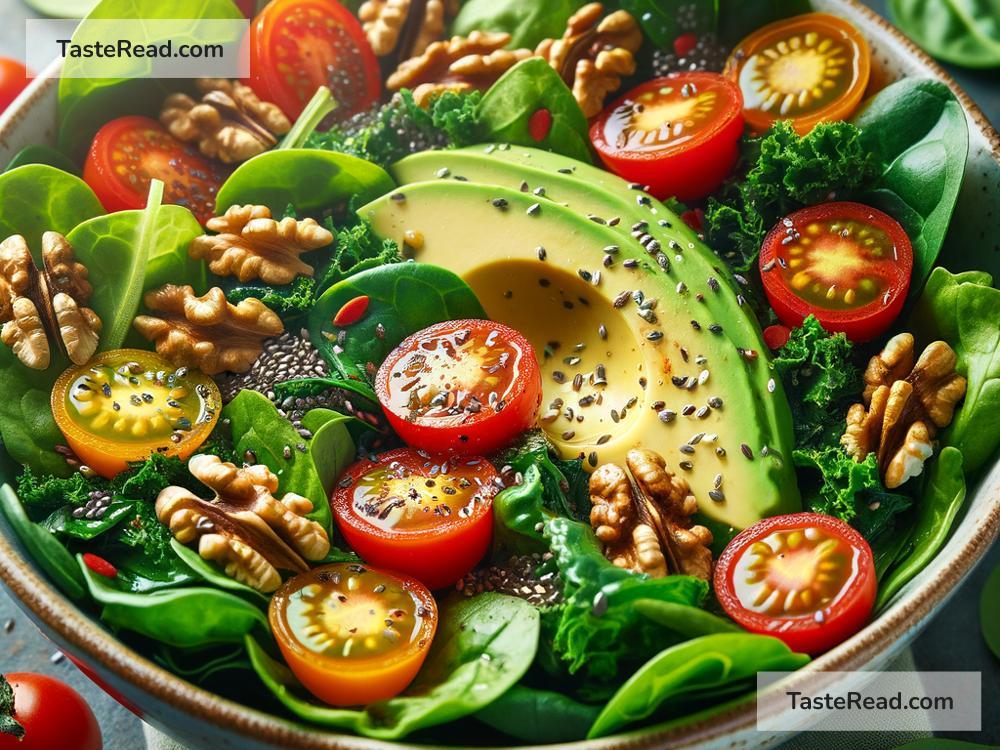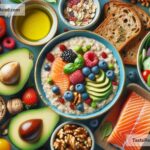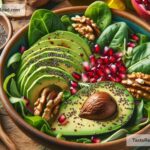Foods to Reduce Varicose Veins: Nourishing Your Way to Healthier Veins
Varicose veins can be uncomfortable and even physically distressing for many people. These swollen and twisted veins, often appearing on the legs, are the result of poor blood flow and weakened vein walls. While several factors contribute to varicose veins—including genetics, age, prolonged sitting or standing, and hormonal changes—what you eat can play a big role in managing and even reducing them. Certain foods can help improve blood circulation, strengthen vein walls, and reduce inflammation. If you’re looking for natural ways to combat varicose veins, filling your plate with these foods might be a great place to start.
Why Diet Matters for Varicose Veins
Before diving into specific foods, let’s understand why your diet can influence varicose veins. Healthy blood flow and strong vein walls are essential for keeping veins functioning properly. Improper nutrition can lead to inflammation, poor circulation, and weakened veins, all of which can worsen varicose veins over time. By eating foods rich in certain vitamins, minerals, and antioxidants, you can promote better vein health and help alleviate symptoms.
Here’s a list of helpful foods for reducing varicose veins:
1. High-Fiber Foods: Supporting Healthy Blood Flow
Fiber is your digestive system’s best friend, but it’s also important for vein health. Constipation can increase pressure in the veins of your lower body, worsening varicose veins. By eating a diet rich in fiber, you avoid straining your veins during digestion.
Great high-fiber options include:
- Whole grains like oats, brown rice, and quinoa
- Fruits such as berries, apples, oranges, and bananas
- Vegetables like carrots, spinach, broccoli, and sweet potatoes
- Beans, lentils, and nuts
Enjoying these foods regularly will help both your digestion and your veins!
2. Foods Rich in Vitamin C: Strengthening Vein Walls
Vitamin C is crucial for producing collagen and elastin, two proteins that help keep your veins strong and flexible. Weak vein walls are more prone to swelling, so boosting your Vitamin C intake can reduce your risk of varicose veins and improve overall vein function.
Top Vitamin C-rich foods:
- Citrus fruits like oranges, lemons, and grapefruits
- Strawberries and blackberries
- Bell peppers, especially the red and yellow varieties
- Tomatoes and guava
Not only are these foods great for your veins, they’re also delicious and refreshing!
3. Flavonoid-Rich Foods: Improving Circulation
Flavonoids are plant compounds that have powerful antioxidant properties. They help improve blood circulation, reduce inflammation, and prevent damage to veins. Research shows flavonoids can also encourage veins to function more efficiently by reducing blood pooling in affected areas.
Eat more of these flavonoid-rich foods:
- Dark leafy greens like kale, Swiss chard, and spinach
- Onions, garlic, and leeks
- Dark chocolate (opt for organic options with at least 70% cocoa)
- Fruits like blueberries, cherries, plums, and grapes
These colorful foods are packed with flavonoids, making them not only good for your veins but also great for your overall health.
4. Foods High in Potassium: Balancing Sodium Levels
Too much sodium in your diet can lead to water retention, which puts added pressure on your veins and worsens varicose veins. Potassium, on the other hand, helps regulate water levels in the body and reduces swelling. Eating more potassium-rich foods can help counteract the damages caused by excess salt.
Best potassium-rich foods:
- Bananas
- Avocados
- Sweet potatoes
- Beans and lentils
- Cucumbers and zucchini
Pair these foods with a well-balanced diet to keep your veins healthy and happy.
5. Anti-Inflammatory Foods: Reducing Pain and Swelling
Inflammation plays a big role in vein discomfort, so eating anti-inflammatory foods can help relieve symptoms. These foods fight against oxidative stress, which can damage veins and make them less elastic.
Some anti-inflammatory foods to try:
- Fatty fish like salmon, sardines, and mackerel (rich in omega-3 fatty acids)
- Nuts like walnuts and almonds
- Turmeric, ginger, and cinnamon (powerful spices with anti-inflammatory properties)
- Olive oil and flaxseed oil
Including these foods in your daily meals can ease inflammation and improve vein health over time.
6. Hydrating Foods: Keeping Veins Elastic
Proper hydration is essential for vein health. Staying hydrated ensures smooth blood flow and prevents veins from becoming rigid or swollen. Eating hydrating foods alongside drinking plenty of water can help you achieve this.
Best hydrating foods:
- Cucumbers
- Watermelon
- Celery
- Lettuce
- Strawberries
Keeping your body properly hydrated supports both your veins and your overall health.
Final Thoughts
While diet alone won’t cure varicose veins, eating the right foods can make a big difference in managing symptoms and improving your vein health. A well-balanced diet that includes high-fiber, vitamin-rich, anti-inflammatory, and hydrating foods can boost circulation, reduce swelling, and protect your veins from further damage.
Pair good nutrition with regular exercise, stretching, and avoiding long periods of sitting or standing for a holistic approach to varicose vein management. If your varicose veins become severe or cause pain, be sure to consult a healthcare professional for proper treatment.
By fueling your body with healthy foods, you can give those hardworking veins some much-needed support and enjoy better overall health. So, grab a plate full of wholesome, vein-friendly foods and let your journey toward healthier veins begin!


